Video
Sign up for our newsletter
We summarize the week's scientific breakthroughs every Thursday.
-
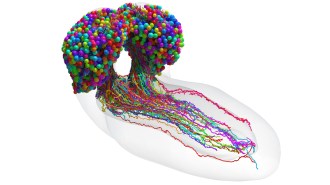 Neuroscience
NeuroscienceScientists have mapped an insect brain in greater detail than ever before
Researchers have built a nerve cell “connectivity map” of a larval fruit fly brain. It’s the most complex whole brain wiring diagram yet made.
-
 Cosmology
CosmologyAstronomers spotted shock waves shaking the web of the universe for the first time
Studying these elusive shock waves could give scientists a better look at the mysterious magnetic fields that permeate the cosmic web.
By Elise Cutts -
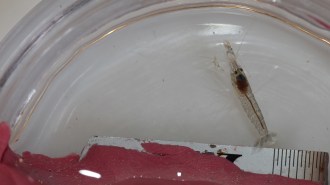 Animals
AnimalsThe fastest claw in the sea belongs to young snapping shrimp
When juveniles snap their claws shut to create imploding bubbles, they create the fastest accelerating underwater movements of any reusable body part.
By Jake Buehler -
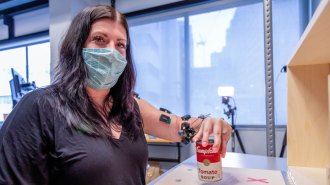 Health & Medicine
Health & MedicineA new treatment could restore some mobility in people paralyzed by strokes
Electrodes placed along the spine helped two stroke patients in a small pilot study regain control of their hands and arms almost immediately.
-
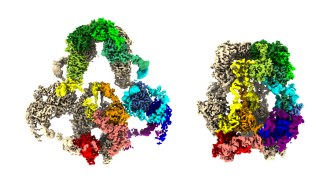 Health & Medicine
Health & Medicine3-D maps of a protein show how it helps organs filter out toxic substances
Images of LRP2 in simulated cell environments reveal the structural changes that let it catch molecules outside a cell and release them inside.
-
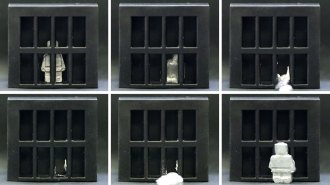 Materials Science
Materials ScienceThese shape-shifting devices melt and re-form thanks to magnetic fields
Miniature machines made of gallium embedded with magnetic particles can switch between solid and liquid states.
-
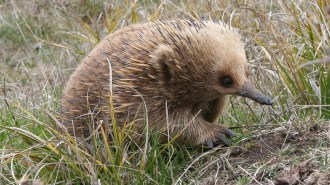 Animals
AnimalsThese adorable Australian spike-balls beat the heat with snot bubbles
An echidna’s snot bubbles coat the spiny critter’s nose with moisture, which then evaporates and draws heat from the sinus, cooling the blood.
By Elise Cutts -
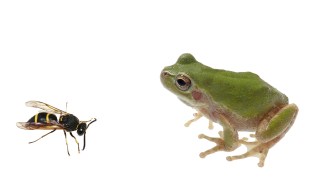 Life
LifeLong genital spines on male wasps can save their lives
A male wasp’s genital spines can save his life in an encounter with a scary tree frog, a new study shows.
By Susan Milius -
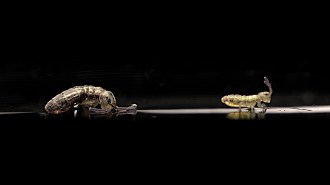 Life
LifeVideo reveals that springtails are tiny acrobats
Poppy seed–sized cousins of insects, famed for wild escape leaping, right themselves in mid-falls faster than cats.
By Susan Milius -
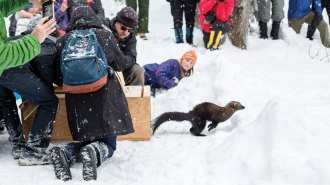 Animals
AnimalsTree-climbing carnivores called fishers are back in Washington’s forests
Thanks to a 14-year reintroduction effort, fishers, or “tree wolverines,” are once again climbing and hunting in Washington’s forests after fur trapping and habitat loss wiped them out.
-
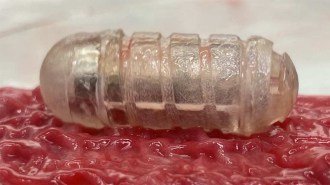 Health & Medicine
Health & MedicineThis robotic pill clears mucus from the gut to deliver meds
A whirling robotic pill wicks mucus from the gut, allowing intravenous drugs such as insulin to be given orally, experiments in pigs suggest.
By Meghan Rosen -
 Particle Physics
Particle PhysicsHow ghostly neutrinos could explain the universe’s matter mystery
If neutrinos behave differently from their antimatter counterparts, it could help explain why our cosmos is full of stuff.